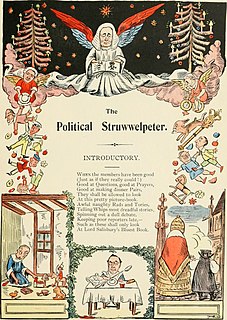A Quote by B. C. Forbes
The young man who addresses himself in stern earnest to organizing his life-his habits, his associations, his reading, his study, his work-stands far more chance of rising to a position affording him opportunity to exercise his organizing abilities than the fellow who dawdles along without chart or compass, without plan or purpose, without self-improvement and self-discipline.
Quote Topics
Related Quotes
Nothing is so insufferable to man as to be completely at rest, without passions, without business, without diversion, without study. He then feels his nothingness, his forlornness, his insufficiency, his dependence, his weakness, his emptiness. There will immediately arise from the depth of his heart weariness, gloom, sadness, fretfulness, vexation, despair.
He was a foe without hate; a friend without treachery; a soldier without cruelty; a victor without oppression, and a victim without murmuring. He was a public officer without vices; a private citizen without wrong; a neighbor without reproach; a Christian without hypocrisy, and a man without guile. He was a Caesar, without his ambition; Frederick, without his tyranny; Napoleon, without his selfishness, and Washington, without his reward.
Interdependence is and ought to be as much the ideal of man as self-sufficiency. Man is a social being. Without interrelation with society he cannot realize his oneness with the universe or suppress his egotism. His social interdependence enables him to test his faith and to prove himself on the touchstone of reality.
He who lets the world, or his own portion of it, choose his plan of life for him, has no need of any other faculty than the ape-like one of imitation. He who chooses his plan for himself, employs all his faculties. He must use observation to see, reasoning and judgment to foresee, activity to gather materials for decision, discrimination to decide, and when he has decided, firmness and self-control to hold to his deliberate decision.
In the infinite wisdom of the Lord of all the earth, each event falls with exact precision into its proper place in the unfolding of His divine plan. Nothing, however small, however strange, occurs without His ordering, or without its particular fitness for its place in the working out of His purpose; and the end of all shall be the manifestation of His glory, and the accumulation of His praise.
Behold the Child among his new-born blisses
A six years' Darling of a pigmy size!
See, where 'mid work of his own hand he lies,
Fretted by sallies of his mother's kisses,
With light upon him from his father's eyes!
See, at his feet, some little plan or chart,
Some fragment from his dream of human life,
Shaped by himself with newly-learned art.
The evil of the actual disparity in their ages (and Mr. Woodhouse had not married early) was much increased by his constitution and habits; for having been a valetudinarian all his life, without activity of mind or body, he was a much older man in ways than in years; and though everywhere beloved for the friendliness of his heart and his amiable temper, his talents could not have recommended him at any time.
Men and women are made for each other, but their mutual dependence differs in degrees; man is dependent on woman through his desires; woman is dependent on man through her desires and also through her needs; he could do without her better than she can do without him. She cannot fulfill her purpose in life without his aid, without his goodwill, without his respect.....Nature herself has decreed that woman, both for herself and her children, should be at the mercy of man s judgment.
Depending on the year or the therapist he was seeing, he'd learned to ascribe just about every facet of his character as a psychological reaction to his parents' fighting: his laziness, his overachieving, his tendency to isolate, his tendency to seduce, his hypochondria, his sense of invulnerability, his self-loathing, his narcissism.
Mary adored Jesus as the Bridegroom of souls. Union is the final purpose of love. Jesus by the gift of His substance in the Eucharist unites Himself with our souls as with His dear spouses. As a Bridegroom, He gives them all His possessions, His name, His heart, His whole Self, but on the condition that the soul reciprocates. The soul, His spouse, shall live for Him only
In the present age, man proves his separation from his Creator by his spirit of self-sufficienc y and positive rejection of God. The present issue between God and man is one of whether man will accept God's estimate of him, abandon his hopeless self-struggle, and cast himself only on God who alone is sufficient to accomplish his needed transformation.

































